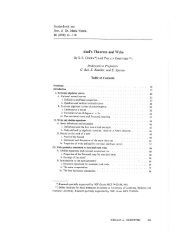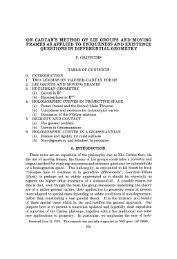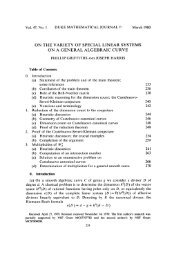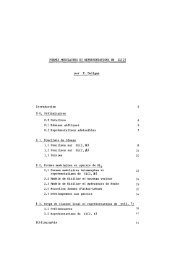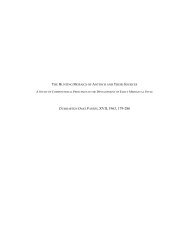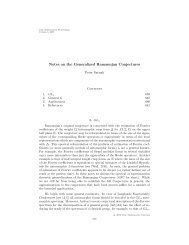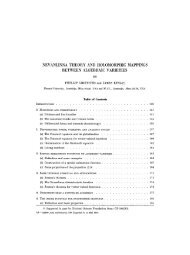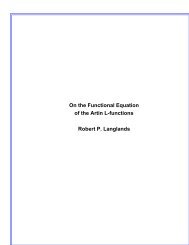View PDF - Project Euclid
View PDF - Project Euclid
View PDF - Project Euclid
Create successful ePaper yourself
Turn your PDF publications into a flip-book with our unique Google optimized e-Paper software.
CURVATURE AND COMPLEX SINGULARITIES 469<br />
I m tflt C(m, k) + 9k<br />
Ikll r<br />
where rn N- n. Indeed, the unitary group U(m) acts irreducibly on the<br />
space Symk((Em*) of homogeneous polynomials of degree k in tn + 1, ", tN; it<br />
leaves invariant the inner product<br />
I<br />
(t, t)=<br />
where do- is the invariant volume on the sphere, as well as the inner product<br />
induced from the standard one on (m. It follows from Schur’s lemma that these<br />
two inner products are proportional. Setting<br />
we deduce that<br />
where<br />
Pk(’M)- cte<br />
cte<br />
dM A %/--1 (to, A tb,)<br />
i Pk(M)rm + 2 dM<br />
k=O<br />
since h,u<br />
C ,g, R,:,I,I... R,,<br />
by (3.9). Observe that this step is easier than in the real case where skewsymmetry<br />
conditions intervene. More importantly, using<br />
we deduce that<br />
where<br />
4)=<br />
2<br />
P(tq)dM C(tqM) A 49"-<br />
Ck(’M) cte Z A<br />
is, by (3.5), the kth basic Chern polynomial in the curvature matrix f of M.<br />
Summarizing, we have arrived at our desired result:<br />
(3.18) vol rr(M) C(k, n, m)/z(m+ k) Ck("M) i 6 n- k.<br />
k=O



